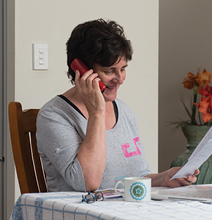
Nowadays, new forms of civil society participation have captured growing interest from political authorities worldwide, as the perceived legitimacy of political representation is slowing down. Enabling older people to be consulted in the decision-making or implementation of public policies that affect them will not only enhance the quality of democracy, but it also leads to the development and implementation of better solutions for older citizens.
AGE Platform has been involved from the start in the MoPAct Project[1] by helping researchers finding good practices of political participation and/or engagement of senior citizens. 37 cases across Europe were selected to help identify the factors that foster participation of senior citizens.
Among the 37 cases, three “best practices” were selected based on their promising approaches of direct involvement of senior citizens:
- The Senior Citizens’ Council in Denmark has the statutory right to be heard in all proposals on all areas that concern the older population, which ensures that their opinions are heard. All city councils are obliged to consult their SCC before any final decision is reached in matters regarding senior citizens.
- The Dorset Partnership for Older People Projects in the UK includes the Dorset County Council, Dorset Clinical Commissioning Group, the Third Sector and senior people. Their objective is to build supportive communities to enable older people to remain living in their own homes for as long as they wish by developing responsive, appropriate services and activities at a localized level.
- The Senior Citizens’ Participatory Budget in Alfândega da Fé, Portugal invites older people to have their say on the allocation of a share of the annual Municipal Budget in order to solve problems that directly affect them.
Interviews were carried out with older people who explained why their participation in policymaking was important: “I think that our politicians are competent but we – the citizens – are competent too, that’s why we have to talk to each other and tell them what we think about our lives and which opinions older people have about their life situations. We can give politicians and civil servants of local administrations a lot of information and good ideas. But sometimes we have to stop them, to say no to their proposals before they will make the proposals into decisions” (Member of the Senior Citizens’ Council in Denmark).
Based on these best practices, what would be necessary to recreate these kinds of participations of older people back home? MoPact Researchers came up with several policy recommendations that would help local, regional and national levels implementing systems that would involve and encourage political participation of older citizens. Here are some examples of these recommendations:
- Public statements of commitments between political authorities and civil society will are paramount;
- Agencies in charge of the organization of the participatory initiatives should invest in training activities for the actors involved in the process;
- Political authorities should make sure that older people from different age groups, social and economic backgrounds can have access and participate to the initiative, by organsing some transport service if necessary, or by reimbursing travel expenses.
Finally, MoPAct researchers concluded that they gathered good examples of success stories that could inspire many; however, they shouldn’t be taken literally as “the” solution, as every context, needs and expectations, engagement, resources and solutions differ from one place to the other, which are crucial to the successfulness of an initiative. Nonetheless, several recommendations were listed and will be presented at the final Conference on 29 November 2016 in Brussels. Further information is available here.
[1] The MoPAct project is a four-year project that aims to show how ageing can be transformed into an opportunity for European societies. It is interdisciplinary and looks into the following domains: economic consequences, pensions, extended working lives, health and well-being, biogerontology, social support and long-term care, the built and technological environment as well as active citizenship. The MoPAct project finishes in February 2016. The final conference takes place on 29 November 2016 in Brussels.
More information about the project: https://mopact.group.shef.ac.uk






